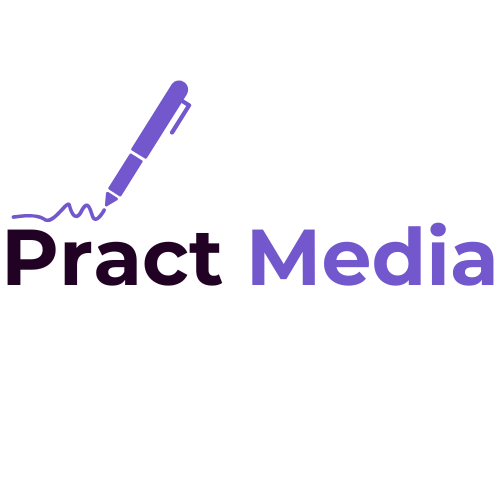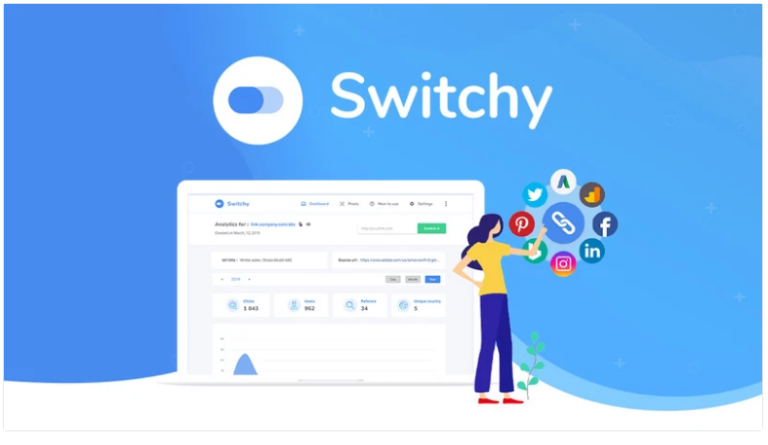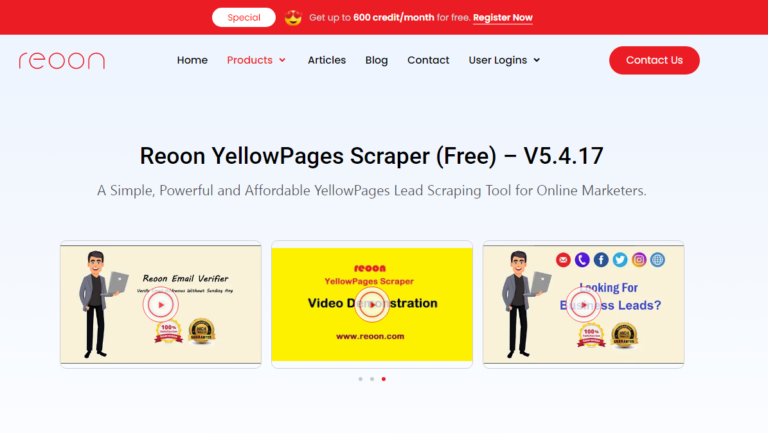B2B Lead Generation Websites Honest Advice
What is B2B Lead Generation?
B2B lead generation is identifying and attracting potential customers
for your business within the business-to-business (B2B) marketplace.
Unlike B2C (Business-to-Consumer) lead generation,
which focuses on individual consumers;
B2B lead generation targets other businesses that can
benefit from your products or services.
Importance of B2B Lead Generation for Businesses
In the competitive B2B landscape, having a steady stream of qualified leads is crucial for growth.
Leads are the lifeblood of any business, as they represent potential revenue.
Effective lead-generation strategies help companies connect
with the right audience, shorten the sales cycle,
and ultimately increase profitability.
How B2B Lead Generation Differs from B2C
The main difference between B2B and B2C lead generation lies in the audience and the sales process.
B2B sales often involve higher-value transactions, longer sales cycles,
and multiple decision-makers.
This requires a more targeted approach,
building relationships and providing value over time.
Understanding B2B Lead Generation Websites
What is a B2B Lead Generation Website?

A B2B lead generation website is a digital platform that attracts and converts business leads.
These websites have features that help capture visitor information,
such as forms, CTAs, and live chat options.
The goal is to engage visitors, provide valuable content,
and guide them through the sales funnel.
Key Features of an Effective B2B Lead Generation Website
To be successful, a B2B lead generation website should have:
Clear Value Proposition: Visitors should immediately understand what your business offers and why it matters.
Lead Capture Mechanisms: Forms, gated content, and chatbots are essential for collecting lead information.
SEO Optimization: Ensuring your website is easily discoverable
by search engines is critical for driving organic traffic.
Responsive Design: The site must be accessible and functional on all mobile devices.
Compelling CTAs: Strong, action-oriented CTAs encourage visitors to take the next step,
whether downloading a resource or contacting your team.
The Role of SEO in B2B Lead Generation Websites
Search Engine Optimization (SEO) is vital for making your website visible to your target audience.
By optimizing your website’s content, structure, and backlinks,
You can improve your rankings on search engines
by increasing traffic and potential leads.
Essential Components of a B2B Lead Generation Website
User-Friendly Design and Navigation
A well-designed website is easy to navigate and provides a seamless user experience.
Transparent menus, intuitive layout,
and consistent branding help visitors find what they want and keep them engaged.
High-Quality Content
Content is king in B2B lead generation.
Your website should offer valuable,
informative content addressing your target audience’s pain points.
This could include blog posts, case studies,
white papers, and video tutorials.
Lead Capture Forms
Lead capture forms are a critical component of any B2B lead generation website.
These forms should be strategically placed and designed to be simple yet effective.
The information requested should be minimal,
balancing the need for data with user convenience.
Call-to-Action (CTA) Buttons

CTAs are crucial for guiding visitors through the conversion process.
These buttons should be prominently displayed,
with clear, action-oriented language encouraging clicks.
Live Chat and Chatbots
Live chat and chatbots provide real-time assistance to visitors,
helping answer questions, solve problems,
and capture leads even when your team isn’t available.
These tools can significantly improve engagement and lead capture rates.
Testimonials and Case Studies
Social proof, such as testimonials and case studies,
is essential for building trust with potential leads.
These elements show that your business has a track record of success and can deliver on its promises.
Optimizing Your B2B Lead Generation Website
SEO Best Practices for Lead Generation
To maximize your website’s visibility and effectiveness,
implement SEO best practices such as:

Keyword Research: Identify and use the terms your target audience is searching for.
On-Page Optimization: Ensure your pages are optimized
with relevant keywords, meta tags, and headers.
Content Marketing: Regularly update your site with fresh,
valuable content to attract and engage visitors.
Importance of Mobile Optimization
With more users accessing websites via mobile devices,
your B2B lead generation website must be fully optimized for mobile.
This includes responsive design, fast load times,
and mobile-friendly navigation.
Page Load Speed and Its Impact on Lead Generation
Slow-loading pages can drive visitors away before they even have a chance to engage with your content.
Optimize your site’s load speed by compressing images,
leveraging browser caching, and using a content delivery network (CDN).
Integrating Social Proof and Trust Signals
Trust signals such as SSL certificates, privacy policies,
and third-party endorsements help build credibility.
Integrating social proof,
like client logos and awards, further reinforces your business’s reliability.
Content Strategies for B2B Lead Generation Websites
Creating Engaging Blog Posts
Regularly publishing blog posts that address industry trends,
common challenges, and actionable solutions can attract and engage your target audience.
This content should be informative, well-researched, and optimized for SEO.
The Power of White Papers and eBooks
White papers and eBooks offer in-depth insights into specific topics,
making them valuable resources for your audience.
These can be gated behind lead capture forms,
providing you with valuable contact information in exchange for access.
Using Webinars and Online Events to Capture Leads
Webinars and online events are excellent tools for generating leads.
They allow you to showcase your expertise,
engage directly with your audience,
and collect contact information from participants.
Leveraging Video Content
Video content is highly engaging and can convey complex information quickly.
Consider creating product demos,
customer testimonials,
and educational videos to enhance your website’s content offerings.
Leveraging Technology for B2B Lead Generation
Marketing Automation Tools
Marketing automation tools help streamline lead-generation efforts by automating email marketing,
lead scoring, and follow-up tasks.
This technology allows you to nurture leads and convert them into customers effectively.
CRM Integration for Seamless Lead Management
Integrating your website with a Customer Relationship Management (CRM) system ensures that all lead data is captured,
organized, and accessible in one place.
This facilitates better communication and follow-up with potential leads.
The Role of Analytics in Optimizing Lead Generation Efforts
Analytics tools provide valuable insights into how visitors interact with your website.
By analyzing this data,
you can identify areas for improvement and optimize your lead generation strategy.
Driving Traffic to Your B2B Lead Generation Website
Organic Search Strategies
SEO and content marketing can help drive organic traffic to your website.
Focus on creating high-quality,
keyword-rich content that resonates with your target audience.
Paid Advertising (PPC and Social Media Ads)
Paid advertising, including Pay-Per-Click (PPC) campaigns and social media ads,
can boost your website’s visibility and drive targeted traffic.
Ensure that your ads are well-targeted and aligned with your lead generation goals.
Email Marketing Campaigns
Email marketing remains one of the most effective channels for B2B lead generation.
Develop targeted email campaigns that nurture leads by providing valuable content and offers.
Social Media Marketing for B2B
Social media platforms like LinkedIn,
Twitter and Facebook can be powerful tools for generating B2B leads.
Share relevant content, engage with your audience,
and use social media ads to reach a wider audience.
Measuring the Success of Your B2B Lead Generation Website
Key Metrics to Track
To assess the success of your lead generation efforts,
track key metrics such as:
Conversion Rate: The percentage of visitors who become leads.
Bounce Rate: The percentage of visitors who leave your site without engaging.
Average Session Duration: The average time visitors spend on your site.
Tools for Monitoring Website Performance
Monitor your website’s performance using tools
like Google Analytics, SEMrush, and HubSpot.
These tools provide detailed reports on traffic,
user behavior, and conversion rates.
Analyzing Conversion Rates and Making Adjustments
Regularly analyze your website’s conversion rates to identify what’s working and what isn’t.
Use A/B testing to experiment with different elements and optimize your site for better results.
Common Mistakes to Avoid in B2B Lead Generation Websites
Ignoring the User Experience
A poor user experience can significantly harm your lead-generation efforts.
Ensure your website is easy to navigate,
with clear CTAs and a logical flow.
Overloading the Website with Information
While providing valuable content is essential, too much information can overwhelm visitors.
Keep your messaging clear and concise, and focus on guiding visitors towards taking action.
Failing to Test and Optimize Regularly
Lead generation is an ongoing process.
To ensure optimal performance,
regularly test different elements of your website, such as forms, CTAs, and content.
Conclusion
Creating a successful B2B lead generation website requires a combination of strategic design,
valuable content, and effective technology use.
By focusing on the needs of your target audience and continually
optimizing your site, you can build a powerful tool for generating high-quality leads.
FAQs
What is the most essential element of a B2B lead generation website?
The most crucial element is a strong value proposition
that communicates what your business offers and why it’s valuable to potential leads.
How often should I update the content on my lead generation website?
Update your content at least once a month
to keep your website fresh and relevant, which is essential for SEO and lead engagement.
Can a B2B lead generation website work for small businesses?
Absolutely! A well-optimized lead generation website can be
a powerful tool for small businesses to attract and convert leads, especially in niche markets.
What role does social media play in B2B lead generation?
Social media platforms, particularly LinkedIn, play a crucial role in B2B lead generation by helping you connect with potential leads,
share valuable content, and drive traffic to your website.
How long does seeing results from a B2B lead generation website take?
It varies, but typically, you can start seeing results within a few months if you consistently apply best practices in SEO,
content marketing, and lead nurturing.







